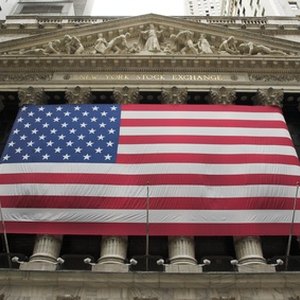
The New York Stock Exchange, or NYSE, is one of the most well-known securities exchanges around the world. In 2007, the NYSE and the European securities exchange Euronext N.V. merged to form NYSE Euronext. The exchange continued to grow with its 2008 purchase of the third largest stock exchange in the United States, the American Stock Exchange, known as AMEX. The NYSE is a self-regulating organization subject to government oversight by the Securities and Exchange Commission.
Self-Regulatory Organizations
The meaning of a self-regulatory organization is the organization, not a government regulatory body, sets forth its own rules and forms and adopts its own acceptable and ethical business practices. The non-profit company NYSE Regulation enforces the rules and regulations set forth by the NYSE. Domestic and international securities markets generally accept NYSE regulations industry-wide. All members of the NYSE, as well as any business or person associated with NYSE members, must adhere to NYSE regulations.
NYSE Regulation Market Surveillance Division
NYSE Regulation is also responsible for NYSE market surveillance to detect any unlawful and unethical behavior of NYSE broker dealers and NYSE listed companies. NYSE Regulation Market Surveillance Division oversees trading abuses perpetrated on the NYSE trading floor, as well as those committed by electronic trade. When the Market Surveillance Division detects any type of trading abuses, it reports them to the NYSE Regulation Enforcement Division, which further investigates abuse allegations.
NYSE Regulation Enforcement Division
The Enforcement Division investigates the abuse allegations and determines if a violation of NYSE rules has occurred. If the Enforcement Division discovers a violation has occurred, it will decide on disciplinary action against the violating party. The Enforcement division can also report these abuses to the SEC, which may then launch an independent investigation.
U.S. Securities and Exchange Commission
The SEC is the government body that oversees the rules and operations of the NYSE. The SEC does not, however, form new rules or rule changes. The formation of new rules and any rule changes are at the discretion of NYSE Regulation. The goal of the SEC is to create financial transparency for public companies in order to hold them accountable for business and financial transactions. All public companies, including those that trade securities on the NYSE must file annual and quarterly financial reports with the SEC.
Division of Trading and Markets
The Division of Trading and Markets, a component of the SEC, is responsible for the supervision of daily operations on all the U.S. stock exchanges, including the NYSE. The Division of Trading and Markets reviews and approves any rule changes and proposals for new rules that NYSE Regulations files with the SEC. The Division of Trading and Markets also performs market surveillance to identify illegal activities of NYSE broker-dealers or representatives of NYSE-listed companies, such as insider trading and market manipulation.
References
Writer Bio
Sue-Lynn Carty has over five years experience as both a freelance writer and editor, and her work has appeared on the websites Work.com and LoveToKnow. Carty holds a Bachelor of Arts degree in business administration, with an emphasis on financial management, from Davenport University.

